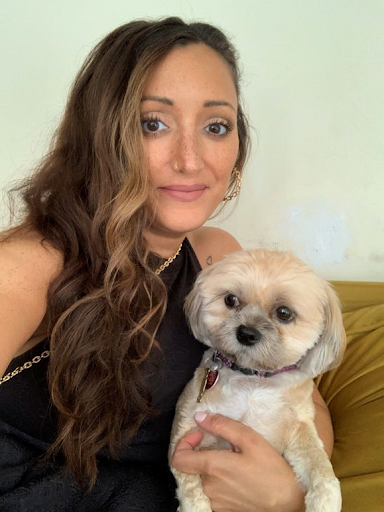NJ Doctors, DE, PA Patients File Lawsuit Challenging Residency Mandate in NJ Medical Aid-in-Dying Law
NY, CT, PA Patients “Routinely” Ask NJ Doctor About Using Law, But They’re Ineligible
Aug 30, 2023
Compassion & Choices filed a federal lawsuit Tuesday afternoon on behalf of cancer patients in Delaware and Pennsylvania and two New Jersey doctors asserting the residency mandate in New Jersey’s medical aid-in-dying law violates the U.S. Constitution’s guarantee of equal treatment. The lawsuit asks the U.S. District Court in Camden, New Jersey, to prohibit state officials and the Camden County prosecutor from enforcing this unconstitutional provision of the law. The lawsuit complaint is posted at: bit.ly/NJMedicalAidinDyingLawResidencySuit
New Jersey’s Medical Aid in Dying for the Terminally Ill Act allows mentally capable, terminally ill adults to obtain prescription medication to peacefully end their suffering. The plaintiffs assert that the law’s residency requirement violates three clauses in the U.S. Constitution, specifically the:
- Privileges and Immunities Clause by limiting the availability of medical aid in dying to residents of New Jersey.
- Dormant Commerce Clause by restricting interstate commerce, including medical care.
- Equal Protection Clause by failing to provide residents and nonresidents equal protection under federal law.
“The only thing that would prevent our patient plaintiffs from seeking the medical option they desperately want to avoid needless end-of-life suffering — and our physician plaintiffs from providing it — is the New Jersey law’s unconstitutional residency requirement,” said Kevin Díaz, chief legal advocacy officer for Compassion & Choices. “Arbitrarily barring medical care solely on the basis of where patients live not only violates the Constitution but upends the standard of care for healthcare delivery.”
New Jersey’s Medical Aid in Dying for the Terminally Ill Act requires a patient’s physician to determine whether or not a terminally ill person who requests medical aid in dying is a New Jersey resident before writing a prescription for the medication. In opting for medical aid in dying, they may obtain a prescription for medication from a doctor, which they may then self-ingest at a time of their choosing.

Judy Govatos
“I have severe reactions to chemo and many medications used in hospice care, so it increases the likelihood that I will suffer an excruciatingly painful death,” said patient plaintiff Judy Govatos, 79, a resident of Wilmington, Delaware, with stage 4 lymphoma who lives within driving distance of New Jersey. “The option of medical aid in dying is not about giving up on life. Instead, it allows people like me to have more full, more active, more good days, more fully involved in life. I don’t want to die fearfully. I want to die affirming that I’ve had this opportunity to be alive in this amazing world and to say goodbye and I love you to my family and friends.”
“I have a wonderful life and do not want to die,” said patient plaintiff Andrea (a/k/a Andy) Sealy, 43, a resident of Philadelphia, Pennsylvania, who has endured a double mastectomy, over 10 surgeries and multiple rounds of radiation alongside oral chemotherapy coupled with hormonal therapy for the last six years to treat stage 4 metastatic breast cancer, which had metastasized to her hip and spine. “But I do not feel fully free to live, because Pennsylvania does not allow medical aid in dying. So I am overly anxious for when the end eventually will come. I would like this option in New Jersey so I can have the gift of autonomy to go out peacefully. It would reduce my anxiety by ensuring I would not have to suffer needlessly at the end of my life.”

Andrea Sealy with her dog Dash
“I routinely receive inquiries about medical aid in dying from patients in New York, Connecticut and Pennsylvania through New Jersey Death with Dignity, the nonprofit organization that I and my colleagues created in order to educate the public and
the medical community about this end-of-life care option,” said physician plaintiff Dr. Deborah Pasik, whose practice is in Morristown, New Jersey. “I have to deny these nonresident patients medical care only due to their residency status,
or I risk criminal and civil penalties, medical board disciplinary actions, and the loss of my medical license.”
“New Jersey’s medical aid-in-dying law has eased the suffering of numerous terminally ill New Jerseyans over the last four years,” said physician plaintiff Dr. Paul Bryman, a geriatrician who has provided qualifying New Jersey patients with medical aid in dying and is the medical director at a hospice in Camden County, New Jersey. His office is within driving distance of the Delaware and Pennsylvania borders. “The residency mandate prevents me from providing nonresident patients who request this gentle dying option with care consistent with their values and wishes at one of the most important moments in their lives.”
“To be effective clinicians, Drs. Bryman and Pasik must establish trusting relationships with patients, families and providers at a medically complex and highly emotional time,” said attorney David B. Bassett, a partner at the law firm of Wilmer Cutler Pickering Hale & Dorr LLP in New York City and co-counsel in the case. “Medical aid in dying is the lone care option in their day-to-day practice for which a patient’s lack of New Jersey residency categorically denies to those clinicians the otherwise appropriate care that they can provide to their patients.”
This lawsuit is the third in the nation to challenge a medical aid-in-dying law’s residency requirement. Ten jurisdictions nationwide have passed medical aid-in-dying laws with a residency mandate (California, Colorado, Hawaii, Maine, New Jersey, New Mexico, Oregon, Vermont, Washington and Washington, D.C.). But two states have removed the residency requirement following legal challenges by Compassion & Choices. In 2022, the end-of-life care advocacy group successfully settled a similar federal lawsuit in Oregon, resulting in the suspension of that state’s residency requirement. In March, Compassion & Choices settled a similar federal lawsuit in Vermont, resulting in the suspension of that state’s residency mandate for the Connecticut patient plaintiff only. Subsequently, Vermont and Oregon updated their medical aid-in-dying laws to remove the residency requirement in May and July, respectively.


